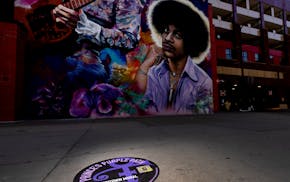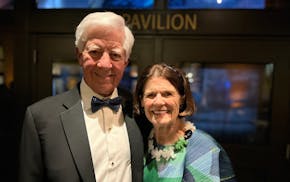These days it's been a challenge to take a simple picture of my middle-school boy. He sees my phone camera and instantly starts mewing. That means he puckers up and lifts his eyebrows, holds an index finger to his lips and then swipes each side of his jawline.
Kids today — so extra! But do I rage on him? Bruh, no. As far as suburban, middle-aged moms go, I'm pretty W (at least I've been told). It's fine. We are Gucci.
The thing about getting old is you feel like you can't communicate with or even understand young people anymore, FRFR. I've asked my tween if I've been sleeping on the latest lingo. He's never taught me these words, but I'm so fire I can pick things up real quick, no cap. He says I'm being cringe and begs me not to embarrass him, especially with this column.
But you cannot stop a wordsmith as GOATed as me. Bruh. Bruh! I craft words for a living, I remind my son. I can achieve peak sigma status with your Gen Alpha folkways, even the words that are kinda mid. Watch me flex. I've got writerly rizz!
Here's the truth, kid, and yes, it will happen to you: One day you're feeling drippy and fluent in modern parlance, and the next morning, you can't keep up with office gossip among co-workers half your age. You've turned cheugy. "Wait, who's Karen?" you ask, trying to get in on the chatter. "Is she the tall one in Finance?"
Is it possible that Gen Alpha, the kids born in years 2010 and after, has the most confounding lexicon in history? It feels that way. Sure, every generation speaks a language of its own. But the amount of content that kids have access to is infinite, and meanings evolve in hyper-speed. Today's vernacular is shaped and amplified in places that old people typically don't frequent (Twitch, Roblox, Fortnite and TikTok, to name just a few).
Adult confusion has prompted a bumper crop of what we in the journalism business called "explainers," articles that educate audiences about a new or complicated concept. Like when the Wall Street Journal reported earlier this year: "Aura — a lighthearted quantification of a person's cool factor — has quickly become the slang of the moment among tweens, teens and 20-somethings. ... Aura, or positive aura points, are a compliment."
Even elderly Gen Zers (the ones who popularized "sus" and "mid") have noticed that younger kids are basically unintelligible. Twentysomethings who inhabit the same apps have gone so far as accusing tweens and young teens of suffering from "brain rot." (Coincidentally, "brain rot" is a finalist for the 2024 Oxford Word of the Year. Oxford defines it as the "supposed deterioration of a person's mental or intellectual state, especially viewed as the result of overconsumption of material (now particularly online content) considered to be trivial or unchallenging." The Oxford winner will be announced Dec. 2. You know which word won last year? "Rizz.")
I asked a former intern in his 20s with a gentle heart to coach me on some of the slang. He patiently explained that "brat" is now a compliment and pointed me to the latest "SNL" monologue from Charli XCX. "It's an attitude, it's a vibe," said the British dance-pop star. A pop culture dictionary defines "brat" as "someone who is confidently rebellious, unapologetically bold, and playfully defiant."
Which leads me to this. What if all the parents out there banded together — with our insufferable skinny jeans, sitting on our huge gyatts — and got bratty? What if we said "skibidi toilet" at least 20 times a day? Would "skibidi" shrink away into the forgotten lexicon of words of our generation, like "booyah" and "da bomb"?
Chat, just vibe with me. For this plan to work, we need to stay focused and lock in. Don't listen to the naysayers. They say cringe. We say sigma.
"This is so Ohio," my son disapproved after reading the top of my column. "If people find out you're my mom, I'm cooked."
I think it's already working. And I just gained 500 aura points.

Minneapolis native Evren Ozel advances to finals of Van Cliburn International Piano Competition

How many of Minneapolis' new 'Purple Path' sidewalk signs for Prince fans can you find?
![Pepe Willie stood for a portrait outside the Capri Theater, which is undergoing a major renovation, in Minneapolis. ] Shari L. Gross • shari.gross@s](https://arc.stimg.co/startribunemedia/4TPIVGPZLESDCIL3ZJ4J4T4ZDU.jpg?h=91&w=145&fit=crop&bg=999&crop=faces)
Pepé Willie, mentor to Prince and Morris Day, dies at 76

Your ultimate guide to eating and drinking in downtown St. Paul

